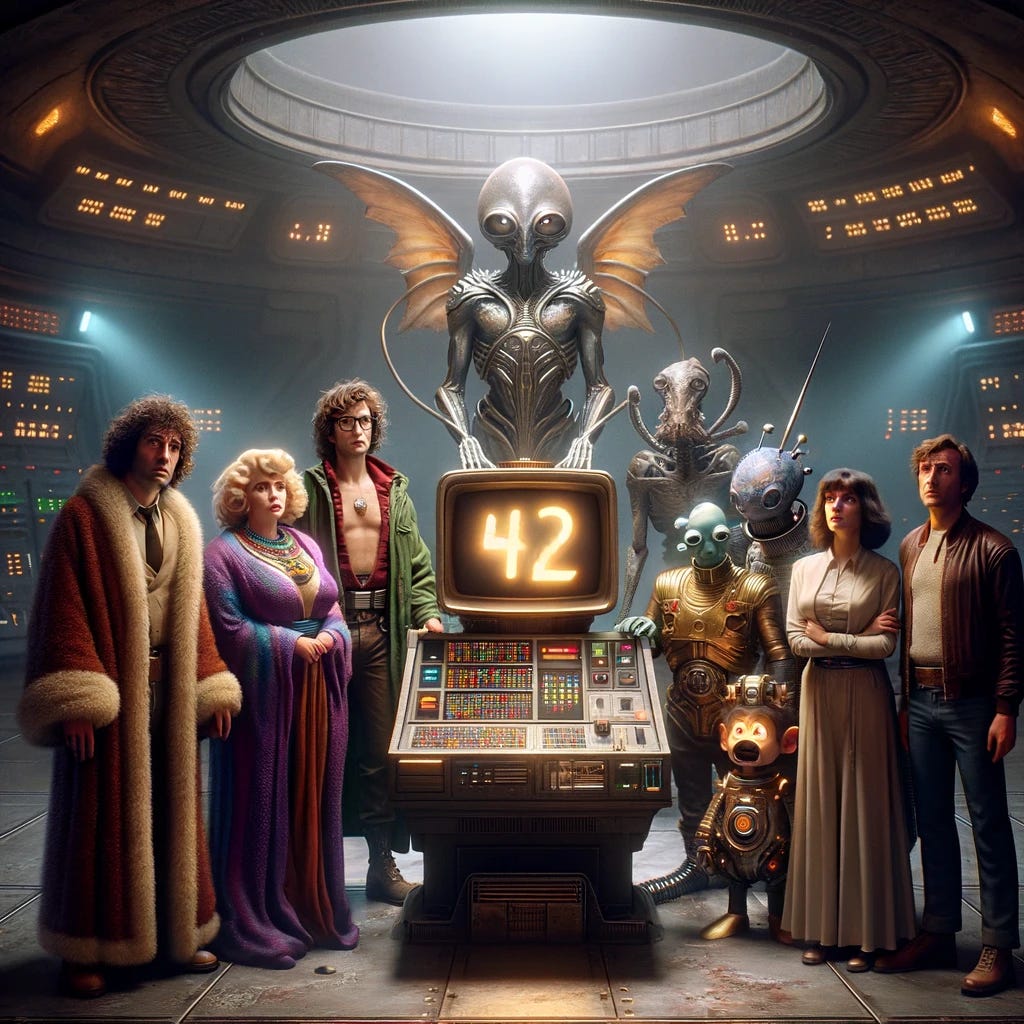It was always about the questions
The human role in the age of AI will be about asking deeper questions instead of giving better answers.
‘42’ - this was the answer of the supercomputer Deep Thought, who was thinking deeply about the meaning of life, the universe, and everything else for seven and a half million years in Douglas Adam’s cult novel “Hitchhikers Guide to the Galaxy”.
Needless to say, people were dumbfounded but had to admit that they couldn’t really tell what “everything else” actually entails. “So once you do know what the question actually is, you'll know what the answer means.”, Deep Thought explained. However, it didn’t possess the ability to come up with the question.
Despite its age, The Hitchhikers Guide to the Galaxy gives a profound idea of the human role in an AI-driven economy. Assuming there will be an oligopoly of providers who will remain in the battle for proficiency in delivering the best answers and outputs, your competitors will have access to the same AI tools that you have.
Hence, we face a completely new challenge. While we used to compete by giving better answers through the use of our human intelligence, we now see that artificial intelligence often comes up with better solutions in a fraction of the time. However, as we use essentially the same AI systems, how do we come up with better answers that set us apart from the competition?
Better prompt engineering could be a way to optimize the answers, but it is probably not enough to fully differentiate.
The only way to differentiate is it seems to ask different questions. Questions that contain essentially different assumptions. Based on the way large language models work and learn, these systems use facts as assumptions that are most common.
I’ll give you a concrete example.
When I asked ChatGPT if heat pumps are a climate-friendly way to heat your home, its answer was: “Yes, heat pumps are generally considered a climate-friendly way to heat homes, for several reasons (…)”. In summary it states:
In summary, when integrated into a system that prioritizes energy from renewable sources and with continued technological improvements, heat pumps represent a significantly climate-friendly option for heating (and cooling) homes.
In this case, ChatGPT hints towards a critical assumption: “(…)when integrated into a system that prioritizes renewable sources (…)”. But this is not always the case.
So let’s change that: “Assuming an energy system that is fully based on coal and taking into account the efficiency loss during the production and transportation of energy, are heat pumps a climate-friendly way to heat your home?”.
As a result, the answer changes.
While heat pumps are more efficient than traditional heating methods and reduce the total amount of coal burned, the scenario of an energy system fully based on coal diminishes the climate benefits of heat pumps compared to scenarios where the electricity mix includes lower-carbon or renewable sources. The specific calculations would depend on the exact efficiencies involved, but the fundamental issue remains: the high carbon footprint of coal as an energy source makes it challenging to classify heat pumps as "climate-friendly" under such conditions without broader systemic changes to reduce carbon emissions.
My goal is not to discuss heat pumps or their sensibility, but I want to use this as an illustration that asking “deeper” questions that fundamentally challenge common assumptions leads to different answers.
The challenge of core assumptions has always been integral to innovation and revolution. Communism challenged the idea and role of private property, a core requirement for capitalism. Einstein’s theory of relativity superseded the theory of mechanics that ruled theoretical physics and astronomy for 200 years. Space X challenged the assumption that rockets can’t be reused and changed the space transportation business.
On very different levels, the ability to question the status quo and to develop opinions about reality different from prevailing thoughts not only remains a unique human advantage but is also a key component to leveraging AI capabilities while differentiating from competitors.



